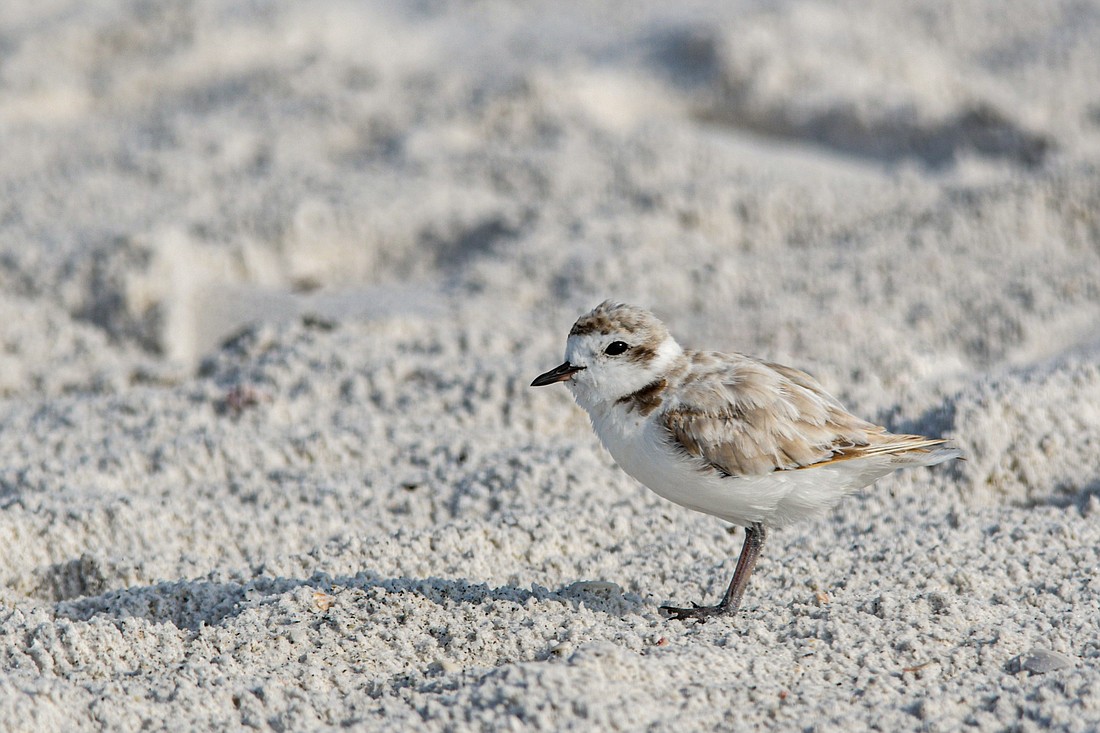- April 25, 2024
-
-
Loading

Loading

Blink, and you might miss them! Small in stature (6.5-inches long and less than 2 ounces), snowy plovers are shorebirds who feed and nest directly on the sands of our beautiful beaches. As they are solitary nesters, with no support of a colony, blending in so perfectly with their environment protects both them and their nests from aerial predators.
Since our barrier islands were bridged and developed, these little shorebirds have faced increased disruption to their nesting attempts. The introduction of new predators (such as crows, raccoons, cats and off-leash dogs), habitat loss due to development, invasive vegetation, beach erosion due to sea level rise and recreational use of beaches have all led to a decline in snowy plover populations. So much so, that they are now a state-designated threatened bird.
When birds, including snowy plovers, have multiple failed nesting seasons, they move on in search of safer breeding grounds. Whitney Beach, once a successful nesting site, saw such an exodus a few years back, as has, recently, Siesta Beach. Though we are nearing the end of snowy plover nesting season (typically March to August), we are excited to see them attempting to nest on North Lido Beach. We are hopeful that they will be successful in this new habitat.
And you can help! To protect these little birds, please give them, and all shorebirds, space to feed and rest without disturbance. Keep an eye out for nests, eggs and chicks in the sand. Always respect posted enclosures and please remember that dogs are not allowed on our beaches.
Save our Seabirds is a non-profit organization whose mission is to rescue, rehabilitate, and release sick and injured wild birds. Follow @SaveOurSeabirds to learn more about our birds.